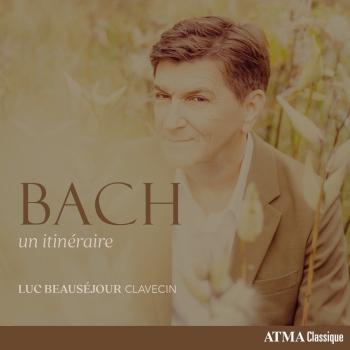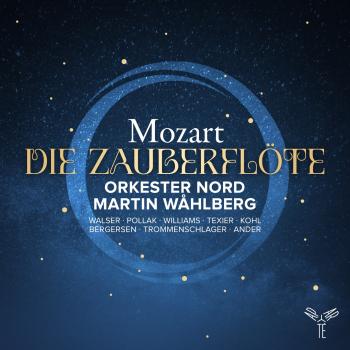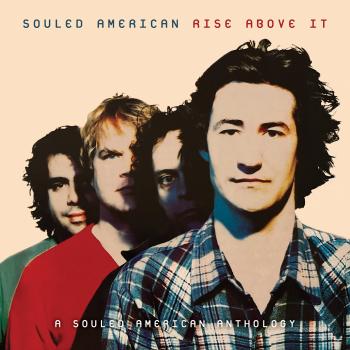Blind Guardian Twilight Orchestra
Biography Blind Guardian Twilight Orchestra
Blind Guardian Twilight Orchestra
With a steady evolution from their early days as a speed metal band to their current, renowned musical blend of glory, drama, and grandiosity, Germany’s BLIND GUARDIAN have long since made their mark as the world’s definitive power metal band. For many, they need no introduction, as the band possesses a track record and back catalogue of classic staples that perhaps only Iron Maiden can match. Called everything from heavy metal bards to modern day minstrels, BLIND GUARDIAN possess the ability to transport their legions of fans to another time and place with their majestic songwriting, fantastically themed lyrics, and their meticulous, emotion-packed music.
Founded under the name Lucifer’s Heritage in Krefeld, Germany by vocalist & bassist Hansi Kürsch, lead guitarist André Olbrich, rhythm guitarist Marcus Dork, and drummer Thomen Stauch, the band released only two demos – 1985’s Symphonies Of Doom and 1986’s Battalions Of Fear - before landing a record deal with Remorse Records. Inspired by the Fates Warning album, Awaken The Guardian, band members decided to change their name to BLIND GUARDIAN and soon acquired new rhythm guitarist Marcus Siepen. Produced by Kalle Trapp (Saxon, Grave Digger), their 1988 debut album, Battalions Of Fear, showed a heavy influence by Iron Maiden and Helloween. On 1989’s Follow The Blind (also produced by Trapp), they leaned toward Testament’s musical direction, but also experimented with orchestral parts for the first time. More significantly, the album served as their introduction to the Japanese market where they ranked high on the import charts for half a year, poising them for a possible breakthrough with their third release. The band’s reputation continued to grow via word-of-mouth, and when Tales From The Twilight World sold 30,000 copies in their home country alone, BLIND GUARDIAN reached the critical juncture in their career they had hoped for. Not only did they feel they had become better musicians and songwriters; they also penned a very distinct sound in the process, and record labels across Europe began courting them. Signing with Virgin Records in 1992, they were one of the very few power metal bands to be signed on a major label.
Their Virgin debut, Somewhere Far Beyond, sold over 130,000 copies and after entering the international charts, BLIND GUARDIAN took their first trip to Japan to record their first live album, Tokyo Tales. Playing to two sold-out audiences of over 4,000 enthused fans, the show captured how strong, special, and symbiotic the relationship between artist and audience can be. The summer of 1994 had BLIND GUARDIAN traveling to Sweet Silence Studios in Denmark to work with Flemming Rasmussen (Metallica) on the Imaginations From The Other Side album. After its release, they toured throughout Europe and secured themselves a very special international honor: they became the third-ever heavy metal band (after Metallica and Bon Jovi) to play in Thailand and received a heroes’ welcome into the country. At this point in their career, with six albums in their discography and ready to work once again with Flemming Rasmussen, BLIND GUARDIAN opted not to release a standard “Best Of” compilation. Instead, to give their fans something truly special, they assembled The Forgotten Tales in 1996, a collection of a few cover songs (“Surfin’ USA,” “Barbara Ann,” and “Long Tall Sally”), a live version of the fan favorite “The Bard’s Song,” plus four acoustic versions and one orchestral arrangement of previously released BLIND GUARDIAN songs.
Self-professed perfectionists, BLIND GUARDIAN were becoming known for making fans wait a few years for a new album. Honing their creative talents with the production assistance of Rasmussen and drawing major inspiration from J.R.R. Tolkien’s book The Silmarillion, 1998’s Nightfall In Middle-Earth quickly became regarded as a pinnacle achievement in the band’s career. This carefully constructed collection of twenty-two tracks harnessed not only power and speed, but opulent orchestral arrangements, renaissance-styled acoustic sequences, spoken word, and flute & violin passages, all complemented by the jovial stroke of a traveling troubadour’s effervescent spirit. In Europe, BLIND GUARDIAN toured more than every before, and performed for the first time in new territories such as México, Brazil, and Argentina. While the band was on the road gathering momentum and adding to their ever-expanding fan base, the demand for BLIND GUARDIAN’s music in new markets continued to grow. Thanks to a licensing deal with Century Media, Nightfall became the band’s first official release in North America and landed on the Billboard charts. Nightfall went on to sell over 300,000 copies worldwide. Securing a loyal international audience and increasing their album sales over ten times with six studio albums, BLIND GUARDIAN’s obviously lively combination of talent, drive, and unified vision helped them earn their laurels of success and granted them a much-revered reputation in the power metal realm that continues to this day.
Making good on a promise made in the spring of 1997, vocalist Hansi Kürsch flew over to the U.S. in June of 1999 to team up with Iced Earth songwriter & guitarist and long-time friend Jon Schaffer (the two first met while on tour together in Europe) on the Demons & Wizards project. After the self-titled album was released in early 2000 and following a short European summer D&W tour, BLIND GUARDIAN began to resume work on their seventh studio album, A Night At The Opera. With the amount of work ahead of them due to their extensive tracking and the epic nature of the band’s musical orchestrations, the album took nearly seventeen months to complete. Teaming up with producer Charlie Bauerfeind (Helloween, Gamma Ray, Angra) at the band’s own Twilight Hall Studios in Grefrath-Oedt, Germany, the new material showcased a more aggressive version of Kürsch’s strongly emotive vocals, and cleaner, down-tuned guitar sounds. While the storytelling aspect of the band and the epic & grandiose studio performances remained intact, noticeably absent were the Tolkien-themed lyrics, but that would prove to be no hindrance to the success that waited them.
The band’s first-ever North American single, “And Then There Was Silence,” (which clocked in at over fourteen minutes, featured fifty vocal tracks, thirty guitar tracks, and took over four months to record) debuted on Billboard’s Top 200 Singles chart with no radio airplay. Metal Maniacs hailed BLIND GUARDIAN as “one of the few bands that consistently create 10-plus minute epics that never bore.” A Night At The Opera went on to debut at #37 on the Billboard Top Independent Albums chart, secured the #1 album position in Greece, #5 in Germany, #8 in Spain, and entered the Top 100 charts in Sweden, Italy, Austria, and France. Scoring a 9.5 out of 10 review and called “a pervasive and perennial slice of metal’s past, present, and future” by Brave Words and Bloody Knuckles Magazine, it went on to receive universal praise as one of the best albums in its genre. Even Billboard Magazine praised the band’s “larger-than-life sound, which incorporates the harmonies and drama of Queen with an aggressive, modern sensibility.”
The success of the album brought BLIND GUARDIAN over to North America for the first time, launched with an appearance at Atlanta, Georgia’s sold-out ProgPower III festival plus additional sold-out shows in major cities. With the avid interest of their fervent, ever-growing fan base to see the band perform in a live setting (laying credence to Metal Edge’s claim that the band has “reinvented classic metal for a younger audience”), BLIND GUARDIAN released a 2-CD live album, Live, in 2003 and a double-disc DVD, Imaginations Through The Looking Glass, in 2004. Of note is that the latter was filmed at the first-ever, two-day BLIND GUARDIAN Open Air Festival in Coburg, Germany with the career-spanning set list voted upon entirely by fans before the festival, which ultimately translated into a truly vociferous crowd of over 6,000 on both days.
Early 2005 brought along several significant changes for BLIND GUARDIAN. In addition to signing with Nuclear Blast Records, the band - who managed to keep the same line-up for almost two decades - welcomed new drummer Fredrik Ehmke into the fold following the departure of Thomen Stauch. Once again joined by producer Charlie Bauerfeind at Twilight Hall Studios and diving into production for their eighth studio album, the band set out to create another album’s worth of grandeur. The invigorating music on A Twist In The Myth satisfies on all counts, as demonstrated by the success of the Fly single, which debuted at very impressive international chart positions: #1 in Japan; #4 in Spain & Hungary; #29 in Sweden; #32 in Germany; #52 in Austria; and #94 in Switzerland.
A shining masterwork of their craft, A Twist In The Myth is Germany’s powerhouse in all their majesty. An exultant album fueled by lyrics created from Kürsch’s love of reading and showcasing the band’s drive to explore new musical landscapes, BLIND GUARDIAN’s conviction to their craft is undeniable. According to Terrorizer Magazine, A Twist In The Myth “showcases versatility, oozes sophistication & robust material, and is flawlessly executed.” On “Turn The Page,” the vivid imaginations of multi-tracked guitars combine beautifully with the rich harmonies of Kürsch’s inimitable voice; “Lionheart” drowns in encyclopedic lore and its own soundtrack potential; “Skalds And Shadows,” a ballad in the Celtic tradition, also features new drummer Ehmke on the flute; the instantly recognizable vocal armies of a thousand Hansis are prominent on “Otherland,” which is based on Tad William’s cyberspace fantasy series of the same name; and for “Carry The Blessed Home,” drummer Ehmke lends his talent on the bagpipes while lyrically, Kürsch re-visits Roland The Gunslinger’s character from Stephen King’s series, The Dark Tower.
Musically, there will always remain new lands to explore, but only those with a solid sense of self and an insatiable curiosity to discover new aspects of themselves can initiate that journey of exploration. Poised for their second-ever headlining North American tour this November 2006 with Leaves Eyes, BLIND GUARDIAN’s A Twist In The Myth will surely set the inward light of your innermost emotions free like a magnificent display of lightning accompanied by an echoing chorus of thunder.













